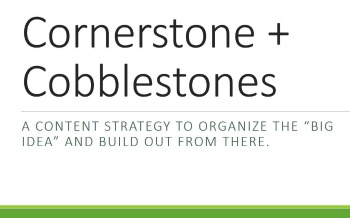My friend Deborah Brody wrote a terrific post about business planning. It’s not a sexy topic–but can anyone say they don’t need a Plan B for when things go wrong?
Most businesses, if they plan at all, focus on the “how are we going to handle the whole disruption-to-our-business” question. Few take that critical next step and ask: How are we going to help our clients, customers, and/or vendors fill the gaps?
Sure, a problem with my business is about me. But it’s also about the impact on everyone else who depends on me.
So who are you going to call?
Hopefully, you’ve put in place a Plan B to help your customers solve their problem while you’re busy solving your own. Because there’s nothing sadder to me than a business that is unable or unwilling to make a referral. It suggests that they either:
- don’t trust their clients not to like the other guy better, or
- think no one else can measure up.
People lose business every day. If someone likes your competitor better, learn from that and adjust your business (if necessary) accordingly. Chances are, for every one person who finds a new home, nine others will be grateful that you found them temporary shelter during your crisis. If you think no one else measures up–well, get over yourself (and/or warn your customers that this might not be the best solution, but that you wanted them to have a solution until you’re back up and running.)
In The New Small, Phil Simon talks about how smart business owners will turn down (the wrong) work rather than take on a project they know will fail. I do this a lot. You’ve probably done this too. He calls it long-term greedy (a phrase coined by someone at Goldman Sachs to refer to focusing on long-term gains rather than worrying about short-term losses). The alternative, I guess, is short-term stupid. Which is how I’d describe a business so focused on itself that it isn’t helping its clients and customers.
Are you long-term greedy?
Photo by Evelyn Giggles (Flickr).



